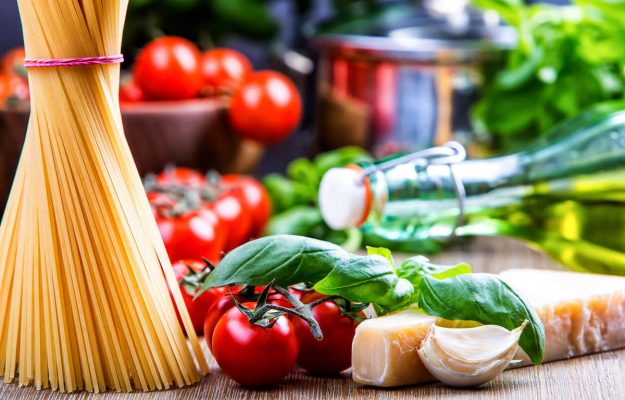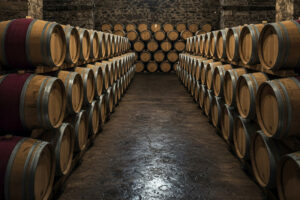Food has become the country’s first wealth, with the agri-food chain extended from fields to shelves and catering, which in Italy reaches a total of 538 billion euros, equal to 25% of GDP, and it offers employment to 3.8 million people. These are the numbers that emerged from the Coldiretti survey on “The value of food in Italy”, presented at the National Day Food and Culture, the main closing event of the program of Matera 2019, European Capital of Culture. Food, in this way, is a real strategic lever for the economic growth of the country, which works better and better than the others and that in a short time has been able to become a driving force for the entire economy of the made in Italy in the national borders and abroad, as well as being of fundamental importance for the environment and the health of Italians.
Coldiretti explains that this is demonstrated by the fact that never before so much Italian food and wine has been consumed on world tables, with the historic record for food exports made in Italy that, in 2019, recorded an increase of +4% on the historic record of 41.8 billion scored last year. Almost two thirds of agri-food exports concern the countries of the European Union, where the main partner is Germany, while outside the EU borders the United States continue to be the reference market for Italian food. And the trend on the international markets could further improve, underlines Coldiretti, with a more effective protection against international “agro-piracy”, which has a turnover of over 100 billion euros by improperly using words, colours, places, images, denominations and recipes that recall Italy for taroque-based products that have nothing to do with the national reality. An increasingly flourishing counterfeit industry, which paradoxically has its main centers in advanced countries, starting from Australia, South America, Canada and the United States, where a major push came from punitive duties against Italian cheeses and cold cuts that will favor the local “bad copies”.
But Italian food has also become synonymous with health in the world, thanks also to the Mediterranean Diet: bread, pasta, fruit, vegetables, meat, extra-virgin olive oil and the traditional glass of wine eaten at the table in regular meals have allowed Italians, recalls Coldiretti, to conquer records in longevity. An important role for health that was also recognized with the inclusion of the Mediterranean Diet in the list of intangible cultural heritage of humanity of UNESCO on November 16, 2010. But food and wine is also a heritage for the environment, because the national landscape is strongly marked by agricultural production, from rolling hills combed by vineyards to olive trees, from farmhouses in the plains to mountain pastures, from green pastures to flowering terraces, which contrast the degradation and hydrogeological instability. It is an added value not only environmental but also of harmony and beauty for Italy, which is also an element of tourist attraction that identifies the Belpaese abroad.
This success is mainly due to the success of Italian agriculture, which is now the greenest in Europe, with 297 DOP/IGP specialities recognised at EU level and 415 DOC/DOCG wines, 5,155 traditional regional products registered along the Italian peninsula, the leadership in the organic sector with over 60,000 organic farms, the decision not to cultivate genetically modified organisms (GMOs), 40.000 farms commit themselves to keeping seeds or plants at risk of extinction and the primacy of world food security with the lowest number of agri-food products with irregular chemical residues (0.8%) against 1.3% of the EU average or 5.5% of non-EU products. And Italy is also a leader in biodiversity: on the national territory, explains Coldiretti, there are 504 varieties registered in the vineyard register against 278 of French cousins and 533 varieties of olives against 70 Spanish.
“The records of the made in Italy at the table are a recognition of the role of the agricultural sector for the sustainable growth of the country”, comments the president of Coldiretti Ettore Prandini. “It is therefore necessary to safeguard a key sector for food security and sovereignty, especially at a time when food has returned to its strategic position in international relations, from free trade agreements to trade wars such as Trump's duties, Brexit or the embargo with Russia. But to support the growth trend of Made in Italy food and wine, it is also necessary to act on Italy's structural delays and unlock all the infrastructures that would improve connections between the south and north of the country, but also with the rest of the world by sea and rail at high speed, with a network of junctions consisting of airports, trains and cargo. A lack that every year - concludes Prandini - represents for our country a damage in terms of less export opportunities to which is added the higher cost of the “logistics bill” related to transport and handling of goods”.
Copyright © 2000/2026
Contatti: info@winenews.it
Seguici anche su Twitter: @WineNewsIt
Seguici anche su Facebook: @winenewsit
Questo articolo è tratto dall'archivio di WineNews - Tutti i diritti riservati - Copyright © 2000/2026







































































































































































































